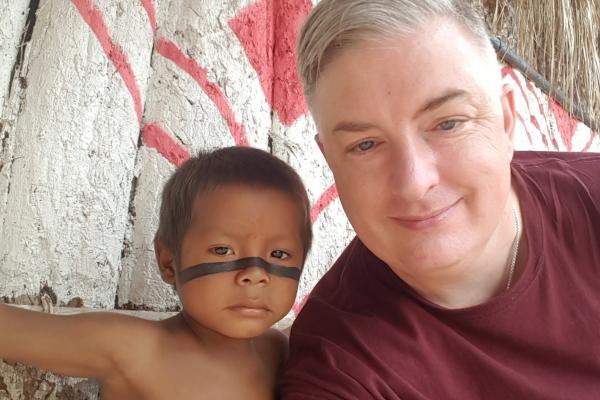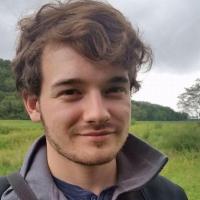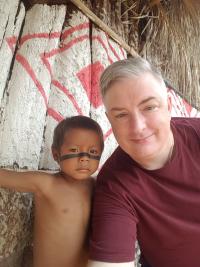Butch Wright, Steven Rhue, and Alex Tuggle awarded Tinker Grants

The Tinker Field Research Grants are awarded for use for travel and field-related expenses for brief periods of pre-dissertation field research in Latin America. The grants are intended to provide graduate students with early experience conducting hands on field research in Latin America the opportunity to develop independent research projects. The grants are to be used for travel and field-related expenses for pre-dissertation field research.

Steven Rhue received a Tinker Field Research Grant ($2,300) to study water insecurity among urban Brazilian children. Children of water insecure households are at disproportion risk for death and disease related to inadequate water and sanitation. Despite their recognized vulnerability, children’s realities with water insecurity are commonly subsumed under those of their adult caretakers. Thus, we know little about how children actually experience and perceive household water insecurity. Steven’s doctoral research addresses this gap in knowledge. With the support of the Tinker Foundation, he will travel to the city of Bélem, Para, Brazil to pilot the use of three visual methods and conduct systematic direct observations to collect preliminary data on children’s perceptions and experiences with water insecurity. These data will be used to refine his methods and research questions, enhance his Portuguese speaking skills and build professional relationships necessary to successfully carry out his doctoral project.

Alex Tuggle received a Tinker Field Research Grant ($2,000) to study migrant health in rural Oaxaca. Migration is a disruptive process often rooted in stress and insecurity experienced in sending communities, or migrants’ points of origin. However, the majority of migrant health research focuses on health after migration and settlement occurs in the destination community. Stressors experienced during critical periods pre-migration can have profound effects on the way the body reacts to stress and also have implications for subsequent poor health outcomes later in life. Additionally, those who previously migrated but returned to their sending communities are almost never captured by current migrant health studies. Chronic exposure to migration-associated stressors likely results in physiological dysregulation, or an allostatic load, wherein immune, metabolic, cardiovascular, and neuroendocrine systems accumulate age-related damage secondary to life’s stressors. Allostatic load indices, or combinations of measurable physiological biomarkers that reflect the damage incurred to these regulatory systems, substantiate the effects of social structures, settings, and support on the health and physiological dysregulation of an individual. This research uses a lifecourse approach to explore variation in Mexican migrant allostatic load and health outcomes by investigating how structural-, social-, and individual-level factors manifest in sending communities both pre-migration and in return migrants – specifically in San Bernardo Mixtepec, a rural Oaxaca Valley village in southern Mexico with high levels of out-migration.

Butch Wright received a Tinker Field Research Grant ($1,000) to study social networks and food security among urban indigenous groups living in Manaus, Brazil. Butch will use the Tinker funds to collect detailed demographic data among the population within the Parque das Tribos neighborhood. These data will enable him to develop a clearer idea of the factors that contribute to variability in the formation of personal networks. In addition, he will conduct focus groups with community leaders in effort to establish uniformity in the terminology to be used in semi-structured interviews and survey instruments he will employ during his dissertation work.
